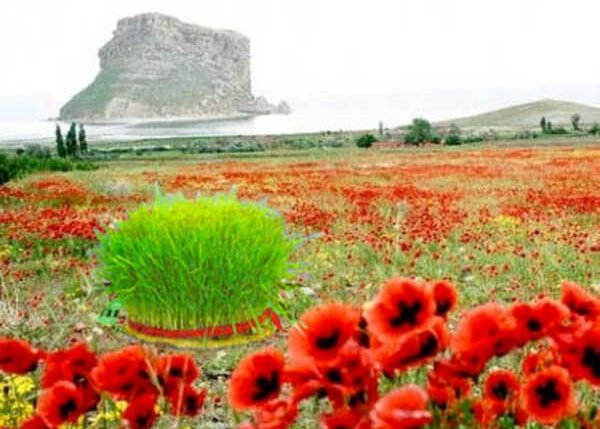Chronos, Kairos and Aion are the three deities of time, events and epic destinies. Here is the multi-religious and multicultural calendar!
Find us on our website Mythology and Legend, on Facebook and on instagram !

The schedule in brief from D-2 to D+5
- April 21, 2025, : Ridván
- April 23, 2025, : Jurģi
The complete interactive calendar
Holidays of the month
| Mymonday | Killtuesday | Wednesdaywednesday | ThuThursday | Frifriday | Satsaturday | Sunsunday |
|---|---|---|---|---|---|---|
31March 31, 2025 |
1April 1, 2025●●(2 events) AkituApril 1, 2025  Today, the Assyrian people celebrate Akitu, the Babylonian and Sumerian new year more than 5 millennia old. For 12 days, prayers, feasts and parades take place to celebrate the god Marduk. #mythology #myth #legend #calendar #1April #Marduk #Akitu Kha b-NisanApril 1, 2025  Today, Assyrians celebrate Kha b-Nisan, the new year. These origins date back to 3000 BCE, the Assyrians wear traditional costumes. Traditional dances, songs and poems accompany the party all night long. #mythology #myth #legend #calendar #April 1 #Assyrian |
2April 2, 2025●(1 event) Sizdah BedarApril 2, 2025  Today Iranians celebrate Sizdah Bedar, the end of Nowruz. This festival probably has its origins in Avesta and Zoroastrianism. It is an opportunity to go into nature to have a family picnic and enjoy the beauties of Spring. It is also the occasion to make jokes (April Fool's Day) since 536 CE. #mythology #myth #legend #calendar #April 1st #nowruz #SizdahBedar #iran #Avesta | 3April 3, 2025 | 4April 4, 2025 | 5April 5, 2025 | 6April 6, 2025 |
7April 7, 2025 |
8April 8, 2025●(1 event) Jashan of FarvardinApril 8, 2025  Today, the Zoroasters celebrate the Jashan of Farvardin, in honor of their Fravashi. The Fravashi is the guardian angel of an individual (existent or non-existent) who sends his urvan (soul) to the material world to fight evil. On the fourth day after death, the urvan returns to his Fravashi where he will benefit from his earthly experience for his next reincarnation. #mythology #myth #legend #8April #Zoroaster #Farvardin | 9April 9, 2025 | 10April 10, 2025 | 11April 11, 2025 | 12April 12, 2025 | 13April 13, 2025 |
14April 14, 2025●(1 event) Çarşema SorApril 14, 2025  Today, Yazidis celebrate Çarşema Sor (Red Wednesday), the new year. Generally celebrated on the first Wednesday after April 14, eggs are boiled and colored, sawuk bread is baked, graves are visited to commemorate the dead and bring them offerings and fruits. Yazidis also wear festive clothing and visit nearby temples, including Lalish, home to the sacred Zemzem Spring, which flows into a dark cave. Yazidis offer sacrifices at the entrance to the cave and receive blessings. #mythology #myth #legend #calendar #April 14 #YazidiNewYear #Sawuk #Lalish | 15April 15, 2025 | 16April 16, 2025 | 17April 17, 2025 | 18April 18, 2025 | 19April 19, 2025 | 20April 20, 2025 |
21April 21, 2025●(1 event) RidvanApril 21, 2025  Today, Bahá'ís celebrate Riḍvān. Lasting twelve days, the festival commemorates the prophet Bahāʾ-Allāh. Riḍvān means paradise and refers to the Garden of Ridván located near Baghdad, where the prophet spent twelve days after being exiled from Baghdad by the Ottoman Empire, before beginning his journey to Constantinople. #mythology #myth #legend #calendar #April 21 #Ridvan | 22April 22, 2025 |
23April 23, 2025●(1 event) JurģiApril 23, 2025  Today, the Baltics celebrate Jurģi, the spring festival which coincides with the Catholic Saint George's Day. There are many rituals during Jurģi, the best known is that of moving. Stone or straw from the old site is carried away and scattered in the new living place, so that the person leaving will not be cursed by any spell. #mythology #myth #legend #calendar #April 23 #jurgi #littuania | 24April 24, 2025 | 25April 25, 2025 | 26April 26, 2025 | 27April 27, 2025 |
28April 28, 2025●(1 event) NichirenApril 28, 2025  Today, Buddhists commemorate Nichiren. He was a Japanese Buddhist monk from the Kamakura era who founded the Mahayana school of Japan on April 28, 1253. His school stood out from other Buddhist movements from its creation by the domination in its teaching of the Lotus Sutra. He is also known for revolutionizing the position of women in Japan thanks to his very feminist positions at the time. #mythology #myth #legend #calendar #April 28 #Nichiren | 29April 29, 2025 | 30April 30, 2025 |
1May 1, 2025●(1 event) DziadyMay 1, 2025  Today, the North Slavic peoples celebrate Dziady. This communion of the living with the dead takes place twice a year. The rituals have been Christianized to become All Saints Day. #mythology #myth #legend #calendar #1st May #31October #dziady |
2May 2, 2025●(1 event) DziadyMay 2, 2025  Today, East Slavic peoples celebrate Dziady in honor of their ancestors. The essence of the rituals was the "communion of the living with the dead", namely the establishment of relationships with the souls of ancestors, periodically returning to their seats from the times of their life. #mythology #myth #legend #calendar #2May #November 1 #Dziady | 3May 3, 2025 | 4May 4, 2025 |
Multicultural and multi-religious almanac
An almanac is a calendar showing the main dates of the calendar, the religious holidays, bearing ephemerides such as the phases of the moon or the duration of the days (lunar and solar calendars).
A calendar is a system for marking dates according to time. Such a system was invented by men to divide and organize time over long periods. The observation of the periodic phenomena of the environment in which they lived — such as the daily movement of the shadow, the return of the seasons or the lunar cycle — served as the first references for organizing the agricultural, social and religious life of societies.
The calendar used today in most of the world is the Gregorian calendar. In everyday language, an ephemeris designates what happens daily; the ephemeris of the day is the list of the significant events of this day.